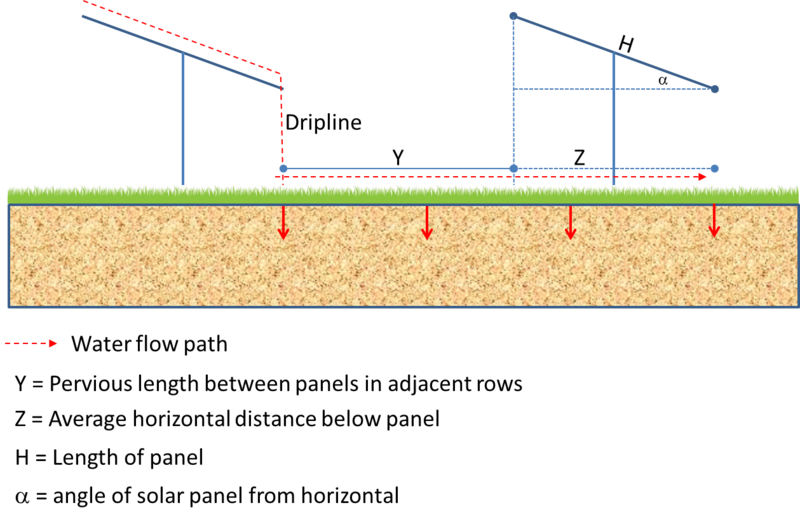
File:Solar panels 1.png Revision as of 12:49, 24 March 2016 by Mtrojan (talk | contribs) (Mtrojan uploaded a new version of File:Solar panels 1.png)

Original file (1,259 × 824 pixels, file size: 107 KB, MIME type: image/png)
Rain falls on the solar panel and runs off to the edge of the panel, where it falls vertically at the dripline to the ground below. From there this water can infiltrate or move along the ground surface toward the next panel. The area beneath the panel and between panels consists of pervious soil with well-maintained vegetation. Water falling from a panel can therefore infiltrate from the dripline until it encounters the next dripline, where additional water is supplied from the next panel. Panels can be rotated from the horizontal position. α measures the angle of rotation from the horizontal position. Because the panel rotates, the length Z, which represents the horizontal distance beneath a panel, varies. The average value for Z is given by
\( Z = (COS(α max)H + COS(α min)) / 2 \)
where H is the horizontal length of the panel.
File history
Click on a date/time to view the file as it appeared at that time.
(newest | oldest) View (newer 10 | older 10) (10 | 20 | 50 | 100 | 250 | 500)| Date/Time | Thumbnail | Dimensions | User | Comment | |
|---|---|---|---|---|---|
| 14:31, 11 March 2016 |  | 1,273 × 914 (88 KB) | Mtrojan (talk | contribs) |
You cannot overwrite this file.
File usage
The following 2 pages use this file: